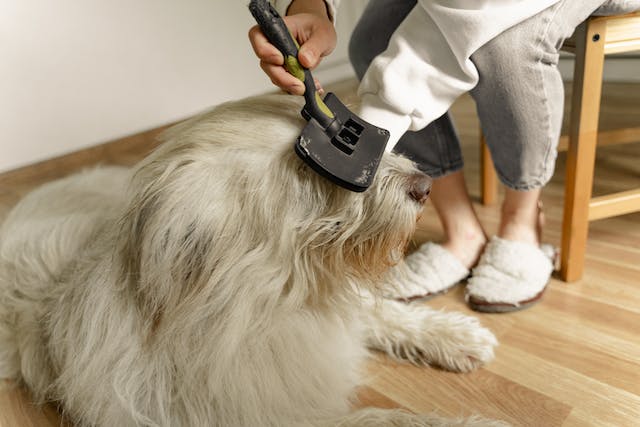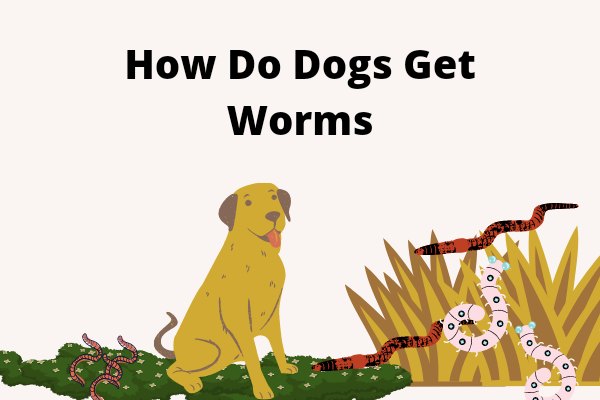10 Common Old Yorkshire Terrier Problems & Care

This post will explain things you should know about old Yorkshire Terrier problems and tips to care for an older Yorkie.
When Yorkies grow older they experience lots of changes both health-wise and behavior-wise. Knowing these changes can help you prepare for them.
In this post, I will be giving you an insight into what to expect from living with an older Yorkie. So keep reading…
Common Old Yorkshire Terrier Problems
Mobility issues, renal illness, reduced appetite, arthritis, lack of interest in preferred activities, and increased shedding on sleeping areas are among the most common issues that Yorkies face as they become older.
Given that many health difficulties in Yorkies begin around the age of 11, you might be in for a long fight with an older Yorkie.
Let’s discuss this in detail…
Here are some of the most prevalent old Yorkshire Terrier problems to be aware of:
1. Canine arthritis
Arthritis is a prevalent condition among Yorkie owners as they become older.
Arthritis is a disease that affects the joints of Yorkies and may be quite painful if not caught and treated early.
If you want to protect your Yorkie from becoming sick, make sure you take him outside and keep him on a regular exercise schedule.
In certain cases, more activities might assist with arthritis; nevertheless, if your veterinarian advises medication, make sure you follow their recommendations.
Furthermore, many pet owners choose to purchase a few pet products to address this issue.
It will feel better if your pet sleeps on a pet bed warmer or an orthopedic bed, for example.
Heating pads can also help, but keep in mind that your Yorkie has to be safeguarded against burns and other accidents.
2. Increased shedding in sleeping areas
Yorkies aren’t known for shedding as much as pugs or other dogs since they don’t have undercoats.
Yorkies shed for a variety of causes, the majority of which may be readily remedied with the assistance of a veterinarian.
If your Yorkie continues to shed excessively after receiving treatment from your veterinarian, this is an ancient Yorkie condition that you must learn to live with.
When you find a handful of fur from where your senior Yorkie got up, you’ll know that is one of the signs your Yorkie nearing the end of his life.
Expect increasing shedding as your Yorkie gets older, and discover how to control shedding in Yorkies.
3. Urinary tract problems
Your Yorkie’s urinary system is in charge of removing waste from the body as well as managing water and electrolytes.
The urinary system also aids in the regulation of blood pressure and the digestion of vitamin D, which is essential for a healthy immune system.
Some urinary tract issues are caused by genetics, while others are caused by trauma, sickness, or chemical exposure.
Your Yorkie may have bladder stones or a urinary tract infection if he pees a lot, has a lot of bladder infections, and starts having “accidents” in the home.
4. Joint problems
One of the most common signs of a problem in older Yorkies is joint and bone problems.
This can start as early as 10 to 12 years old, so be cautious.
Always visit your veterinarian if your Yorkie’s joints get stiff, you will always find out from the drop in his level of activities.
When your Yorkie’s mobility slows down as he gets older, you’ll notice this.
He may exhibit signs of discomfort if you touch his joints again.
Because the inflammation of their joints causes them pain and suffering, it’s no wonder that they’d have to slow down.
Arthritis is a common symptom of Yorkie old age, and it may be seen when a senior Yorkie begins to take each stair one at a time.
5. Cognitive dysfunction
Depression and cognitive deterioration in senior Yorkies can cause them to become confused and disoriented.
Another important health concern to be aware of is their mental condition, which might cause children to be irritable and accident-prone.
Senior Yorkies may become less anxious to play with you or uninterested as a result of these changes.
6. Reduced mobility rate
Your Yorkie’s mobility will degrade at a higher pace than usual as he or she gets older.
As the Yorkie gets older, his or her strength may decline to the point that he or she can no longer stand for lengthy periods of time.
Your Yorkie’s legs may tire out, making climbing stairs or crossing slippery surfaces problematic.
Your Yorkie’s ability to stand and walk may deteriorate over time, and some may even have trouble lifting their heads.
One of the final stages before your Yorkie quits up is to slow down his or her pace. This will be clear, and you should expect to see it.
7. Increased dental diseases
Gum disease and poor dental hygiene can lead to heart disease and renal failure, among other major health issues.
You don’t want your Yorkie’s teeth to fall out! Fortunately, this is a problem that you can resolve.
Brushing your dog’s teeth, avoiding table meals and soft foods, and having your veterinarian clean your dog’s teeth as needed will help prevent most dental disorders and related medical complications.
Gum disease and tooth problems are very frequent in Yorkies. This happens when bacteria enter their teeth.
They must wash their teeth properly at least once every 30 days or visit a dentist for a tooth cleaning to avoid such problems.
8. Retinal dysplasia
Retinal dysplasia is a hereditary condition characterized by faulty retinal development.
If the retina is severely damaged, full retinal detachment can occur, resulting in blindness.
The defect will be apparent at birth or within weeks of birth, and it will not alter save for the risk of full separation. Both eyes are often affected.
9. Appetite fluctuations
Internal organs disintegrate as your Yorkie’s body cells age, which may result in your Yorkie rejecting meals on a regular basis.
Your Yorkie’s appetite might alter for a variety of reasons, so it’s not necessarily a sign that he’s getting older.
Yorkies, on the other hand, frequently cease to eat or modify their feeding patterns as they get older.
Unexpected changes in your Yorkie’s feeding habits should be closely monitored since they might signal that they are becoming older.
10. Collapsed trachea
The naturally C-shaped trachea of Yorkies becomes narrow, like a flattened straw, due to this sickness.
Sometimes just one or two cartilage rings are affected, but in severe cases, the entire trachea might collapse. Tracheal collapse is potentially fatal.
Experts think a tracheal collapse is caused by a hereditary tendency to tissue weakening between the trachea cartilage rings.
It’s more common among Yorkies that are overweight.
How to care for an older Yorkie
Some of the most common approaches for caring for an aging Yorkie include:
- Reduce your Yorkie’s physical activity levels as he grows older.
- Make sure your Yorkie’s food is well-balanced and nutritious as he gets older, and make any required nutritional changes.
- Assist in the development of your Yorkie’s immune system at an older age by providing supplements.
- Ensure that your Yorkie has constant access to clean, freshwater.
- Mineral supplements should be included in your Yorkie’s prepared food.
- Make changes that reduce your Yorkie tolerance for changing body temperatures.
- Artificial preservatives, fillers, and a lot of wheat and soy should all be avoided in your Yorkie food towards old age.
- Provide a high-protein supper to assist your Yorkie to maintain a high level of energy.
- Adjust as needed to accommodate for changes in mobility and activities.
- Avoid carcinogens such as smoked foods for your Yorkie.
- Avoid exposing your senior Yorkie to stressful situations as much as possible.
- Groom your Yorkie on a regular basis to avoid excessive shedding.
- Avoid giving your Yorkie any tension to keep it happy.
- Make a cozy and peaceful resting area for your Yorkie.
- Allow your Yorkie as much sleep as he or she desires.
- Make an appointment with your veterinarian on a regular basis.



![Hairballs in Dogs [Causes, Signs & Remedies] Hairballs in Dogs](https://petcreeks.com/wp-content/uploads/2023/12/pexels-anna-bondarenko-7391070.jpg)
![How to Prevent Ear Infections in Dogs [15 Helpful Hints] How to Prevent Ear Infections in Dogs](https://petcreeks.com/wp-content/uploads/2023/09/pexels-mikhail-nilov-7474856.jpg)

